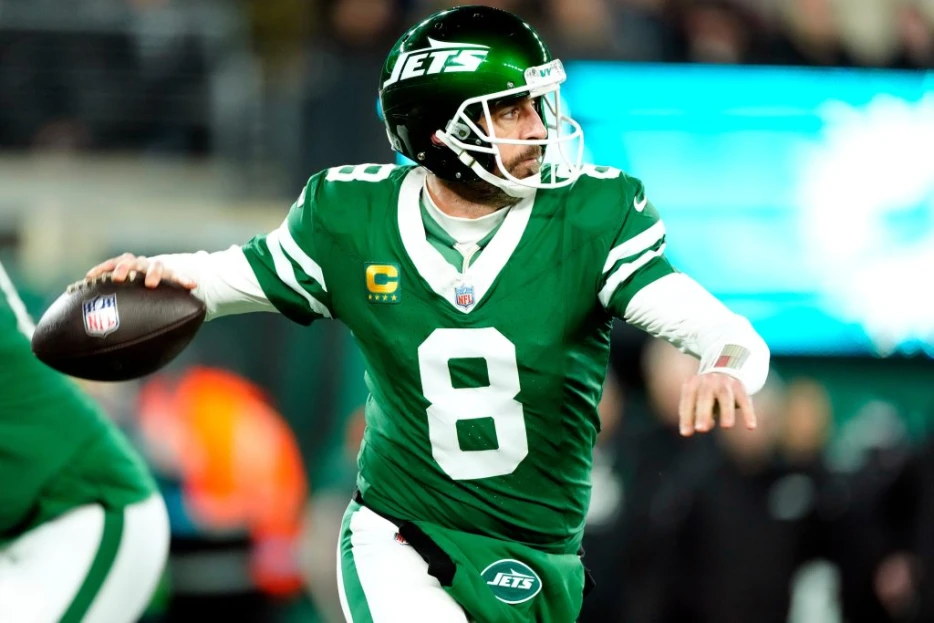
 Pro Football Rumors
Pro Football Rumors
When the Jets traded for Aaron Rodgers, the move was known to be a short-term acquisition. Still, the future Hall of Famer’s abbreviated tenure in New York took a form neither he nor the team anticipated and both sides are now moving on.
In the spring of 2023, the Jets faced the task of once again attempting to find a feasible solution at the quarterback spot. The Sam Darnold selection (third overall, 2018) did not work out as planned, and the decision to trade him to the Panthers after three seasons as a starter signaled another reset at the position. Zach Wilson (second overall, 2021) underwhelmed during his first two years atop the depth chart and was ultimately traded away like three of the other passers taken on Day 1 from his draft class.
After inheriting Darnold, general manager Joe Douglas was tasked with moving on and finding a suitable replacement. The Wilson selection did not meet that goal, and in 2023 adding an established signal-caller represented an obvious priority. A roster featuring former Offensive and Defensive Rookies of the Year (Garrett Wilson, Sauce Gardner) on their initial contracts offered intriguing potential with stable quarterback play. With a Rodgers-Packers separation on the table, the possibility of a trade increased.
Rodgers made public his desire to continue his decorated career with the Jets, and a swap was ultimately worked out in April. Two of his four career MVP awards came in the 2020s, so expectations were high upon arrival in New York for a stretch atop the depth chart with Wilson serving as an understudy. That plan was of course altered right away as a result of Rodgers’ Achilles tear four snaps into his Jets debut. Wilson and Co. struggled on offense en route to a 7-10 record.
By the time Rodgers was back on the field, Wilson had been dealt to the Broncos while Douglas, head coach Robert Saleh and offensive coordinator Nathaniel Hackett remained in place after receiving a mulligan from ownership. Issues on offense persisted early in 2024, however, and in the midst of what became a five-game losing streak Saleh was fired. That move was accompanied by Hackett (who worked with Rodgers in Green Bay and was added to the staff not long before the trade was made) being demoted, something Saleh contemplated during the offseason.
While Rodgers managed to remain in the lineup for all 17 games, the staff changes and even the trade acquisition of longtime Packers teammate Davante Adams did not produced the desired results. After dismissing Douglas midway through the campaign, signs pointed to the Jets moving in a new direction once again this offseason. The new regime led by Darren Mougey and Aaron Glenn will now take on the renewed task of finding a short- and long-term solution under center.
As that process unfolds, a look back on the price paid to add Rodgers reveals the extent of the commitment the Jets made in acquiring him. Here is the final breakdown...